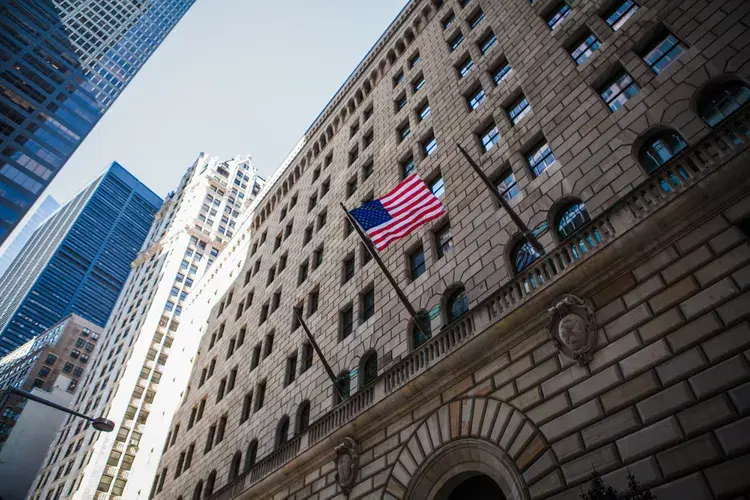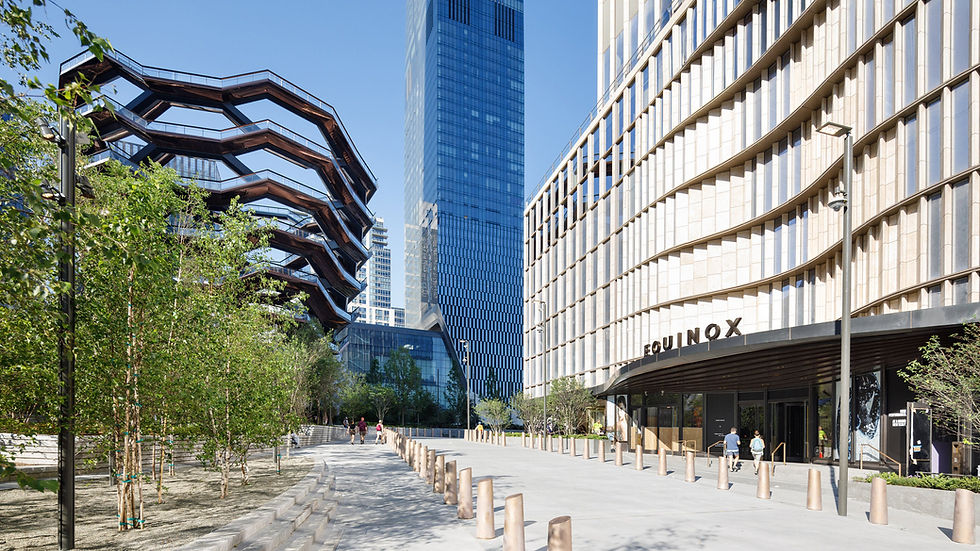Weekly Market Report - September 17, 2021
- Norman Bobrow

- Sep 16, 2021
- 3 min read
***
Deutsche Bank is calling the end of the honeymoon phase for employees’ relationship with remote work. A growing number of workers report feeling isolated from colleagues, Deutsche Bank said in a report to clients. Women are increasingly likely to develop musculoskeletal problems due to inadequate remote-work setups, the report said, and nearly 40% of American workers said they felt exhausted after a full week of virtual meetings. “Despite our initial honeymoon, people are starting to realize that the freedom of work from home does have some downsides: dilution of company culture, coordination issues and even the mental well-being of some workers,” Deutsche Bank analyst Marion Laboure said in the report.
***
One World Trade Center, the 1,776-foot office building that rose in place of the Twin Towers destroyed on Sept. 11, cost $3.8 billion and is the most expensive skyscraper ever built in the U.S. The entire World Trade Center complex hasn’t made a profit since One World Trade opened seven years ago, according to the building’s owner, the Port Authority of New York and New Jersey. In 2020, World Trade Center expenses of $335 million topped revenues of $328 million, the Port Authority’s annual report said. Leasing was slow for years, partly because One World Trade faced pushback from potential tenants put off by an association with the terrorist attack, says Douglas Durst, a private developer brought in by the Port Authority in 2010 to try to help fill the tower. “When we had negotiations with larger tenants, there was always one person involved who said they’re uncomfortable being on the site,” Mr. Durst said. “So we ended up leasing to smaller tenants, where the CEO was able to tell people: ‘If you don’t want to come here, you don’t have to.’ ” But attitudes toward working at the World Trade Center are now changing due to a generational shift in the workplace, businesses say. Many workers today were so young on Sept. 11, 2001, they may see it as a distant historical event, not a personal threat.
***
Microsoft is scrapping plans to fully reopen offices by Oct. 4, saying it can no longer give a date for returning to work because the pandemic is too unpredictable. “Given the uncertainty of Covid-19, we’ve decided against attempting to forecast a new date for a full reopening of our U.S. work sites in favor of opening U.S. work sites as soon as we’re able to do so safely based on public health guidance,” the software maker said Thursday in a blog post. “From there, we’ll communicate a 30-day transition period that provides time for employees to prepare.” The strategy is similar to one adopted by fellow tech giant Apple, which has delayed its return-to-office plans multiple times. Apple told employees it will give them a one-month warning on a return deadline as it copes with Covid-19’s highly contagious Delta variant, which has led to a resurgence in cases.
***
Silverstein Properties, which retains the building rights to 2 World Trade Center, is going back to architect Norman Foster of Foster + Partners as it tries to get what would be the second-tallest skyscraper at the site going. It’s an effort that almost came together in late 2015, only to fall apart when Rupert Murdoch’s News Corp. and 21st Century Fox pulled out of the project in January 2016. If they had followed through, the tower would have been the new home of The Wall Street Journal, Fox News and the New York Post. Now, the designing of 2 World Trade has been returned to Norman Foster, the British architect best known for the “Gherkin”, an office tower in London so nicknamed due to its vegetable shape; 425 Park Avenue in New York, the first new construction on Park’s finance corridor in about 40 years; the Hearst headquarters on Eighth Avenue, a series of interlocking triangles rising out of a castle-like base built in the 1920s; and the ring-shaped Apple headquarters in Cupertino, Calif.
***
Canadian real-estate-investment giant Oxford Properties Group has agreed to buy a 14.5 million-square-foot portfolio of industrial property from KKR & Co. for $2.2 billion, a deal that indicates that the online-shopping boom continues to whet investor appetite for warehouses and distribution facilities. The KKR deal is Oxford’s first purchase of U.S. industrial real estate in “infill” locations close to population centers. These properties typically are used by online retailers as the last distribution points before goods are delivered to homes.









Comments